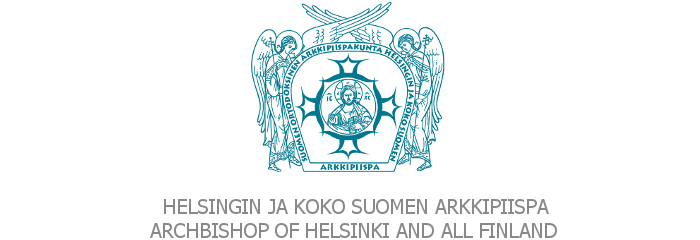Uncreated Light
Our joint prayers bear powerful witness to a Christ who unites us in our belief in His teachings, His sufferings, His resurrection, His ascension and His promise to be with us every day to the end of time.
Every act of worship is also an act of witness to God’s absolute transcendence and His true presence in our midst.
The ultimate message conveyed by the Feast of the Nativity of Christ, which we have recently celebrated, is that ”God is with us”, or in the words with which Orthodox priests greet each other, ”Christ is amongst us”, to which the other replies, ”He is and will be!”
One clear point of emphasis for the Orthodox Church in the ecumenical discussions that have been going on in recent times has been the distinction articulated so well by St. Gregory Palamas between the essence of God and his uncreated energies.
His essenceis a transcendent quality, but the energies are the visible light so evidently experienced by the saints in this life.
This distinction perceived by Palamas is a matter of prime importance notonly for theologians but also for the whole culture that lies behind our definition of our relationships to God, the whole of creation and the whole of history.
The most significant change that has taken place during the last century as far as the Orthodox Church and the whole Christian Church are concerned has been the spread of Christianity to countries and continents where it had not previously been present to any appreciable extent.
The current situation in both the traditionally Christian countries and the new regions is that we are called upon to recognise the missionary nature of the Christian Church, its duty to save people, to insist that while being inthe world, they should not be of the world.
God is a reality, He is present and He has the power to influence events atthe present time and in this world, and we have been called to engage boldly in a dialogue with the world.
Metropolitan John (Zizioulas) of Pergamon, has observed, however, that “from the beginning, the first Christian communities dedicated themselves to constructive dialogue with Judaism and the Greek world. It reached its highest point in the so-called Patristic period, in which the Church dared to tackle a constructive dialogue with the culture of the time, sealing it with his own truth. Only in the modern world has the so-called division between sacred and profane taken place in the world of culture, which has pushed the Church out of the cultural and civil sphere, with damaging consequences not only for the Church, but for civilization itself".
The Church of Christ should always be prepared both to defend the transcendence of God and at the same time to proclaim His real and sanctifying presence in the world.
The ”uncreated light” that lies within our reach is the beacon shining in the darkness that can guide people to a safe harbour and constantly maintain the beauty of the church, which lies in its mystical dimension.
This will in turn allow the church to establish fruitful contacts with the world that God has created but which has subsequently fallen into sin.
It is with this in mind that we offer up our praise here and in every act of worship to the God who exceeds all our understanding, we thank Him for the gift of His Son and we call on the Holy Spirit to come to our aid.
It is this Spirit that brings to life and guides to its true home every soul, every people and every culture that appeals in faith, hope and charity to the Holy Trinity.
Rome, 18.1.2014




